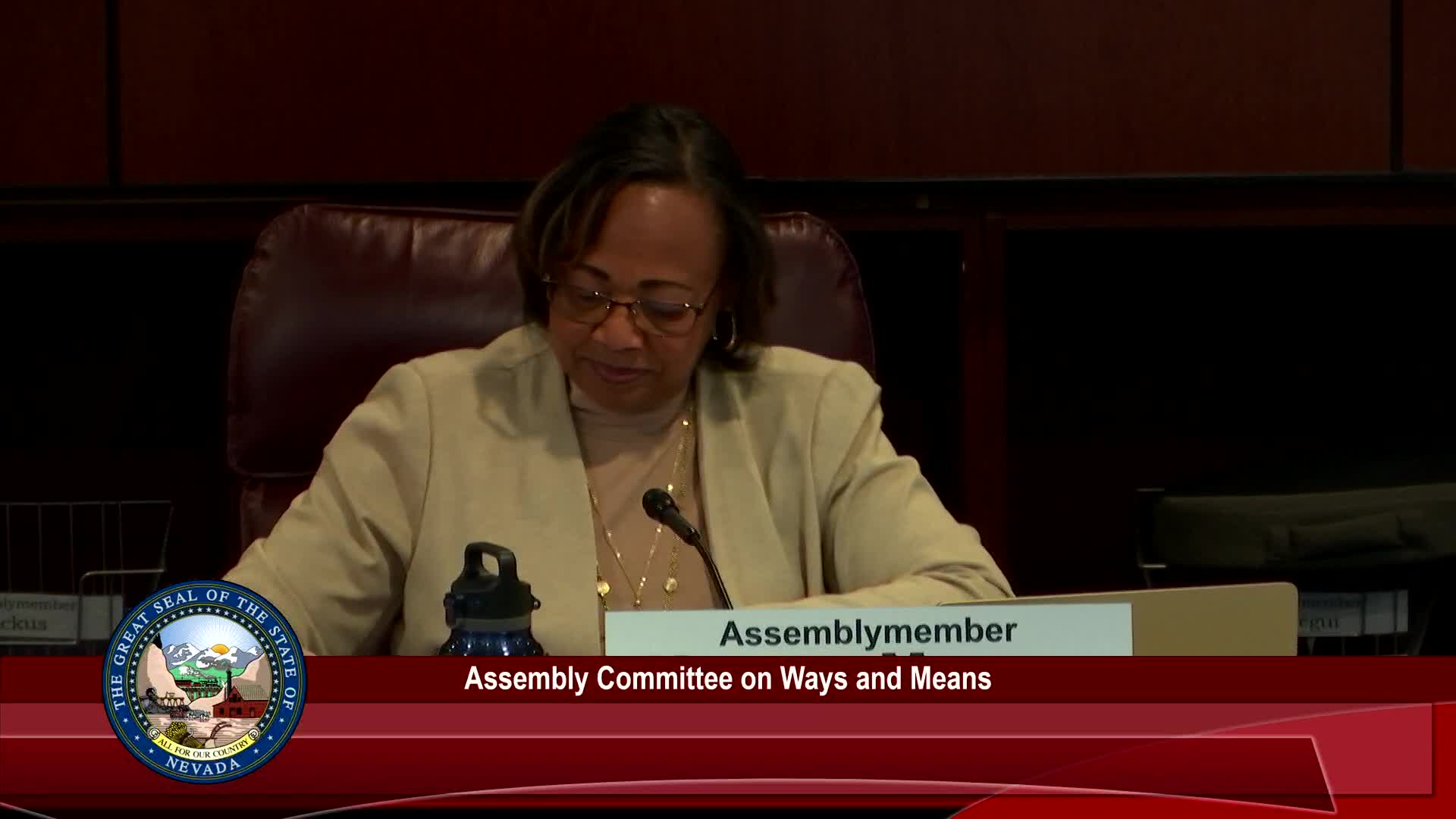Article not found
This article is no longer available. But don't worry—we've gathered other articles that discuss the same topic.
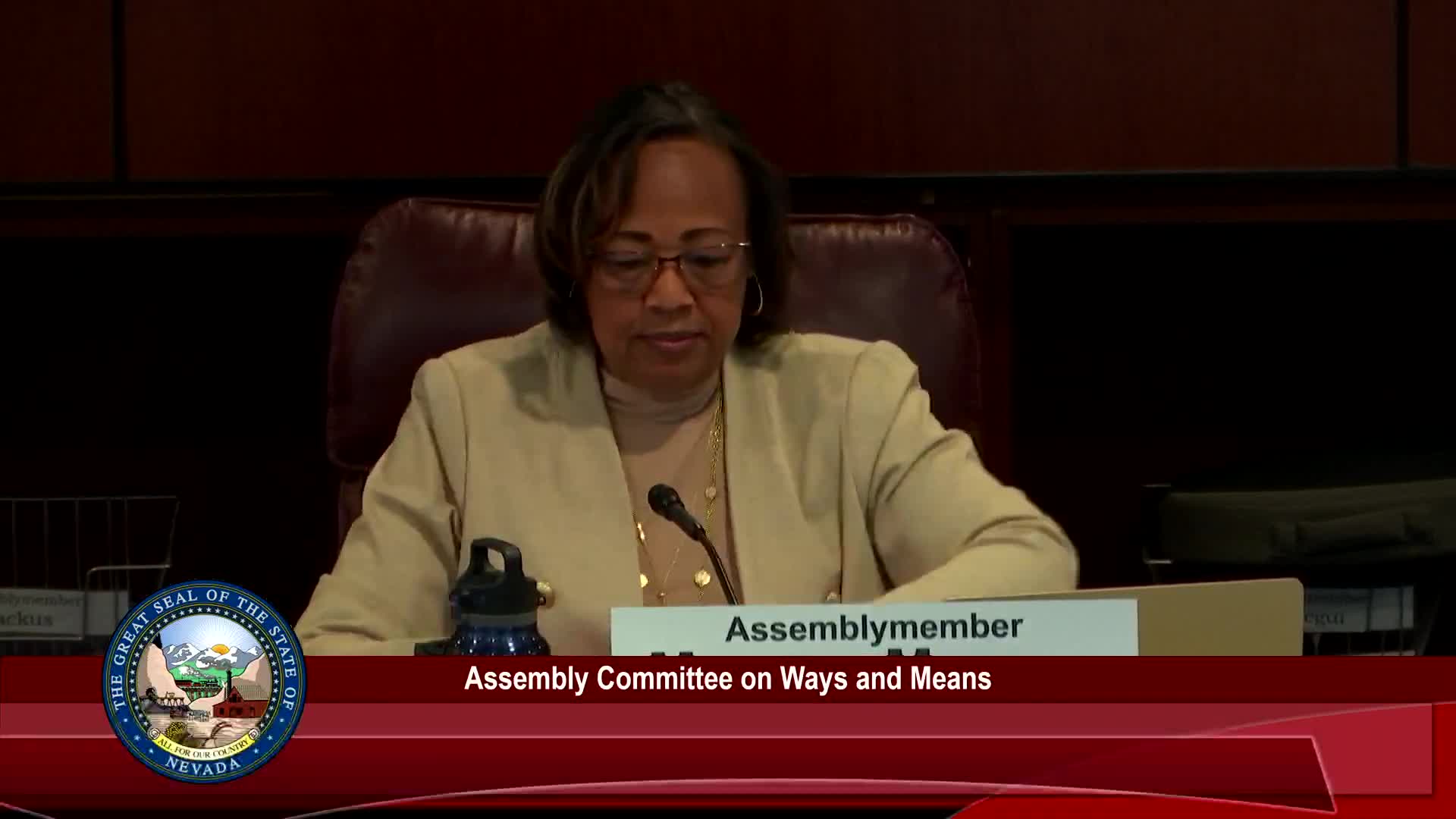
Washoe and charters push AB 386 to let districts choose K–3 reading assessment; NDE warns of reporting workload
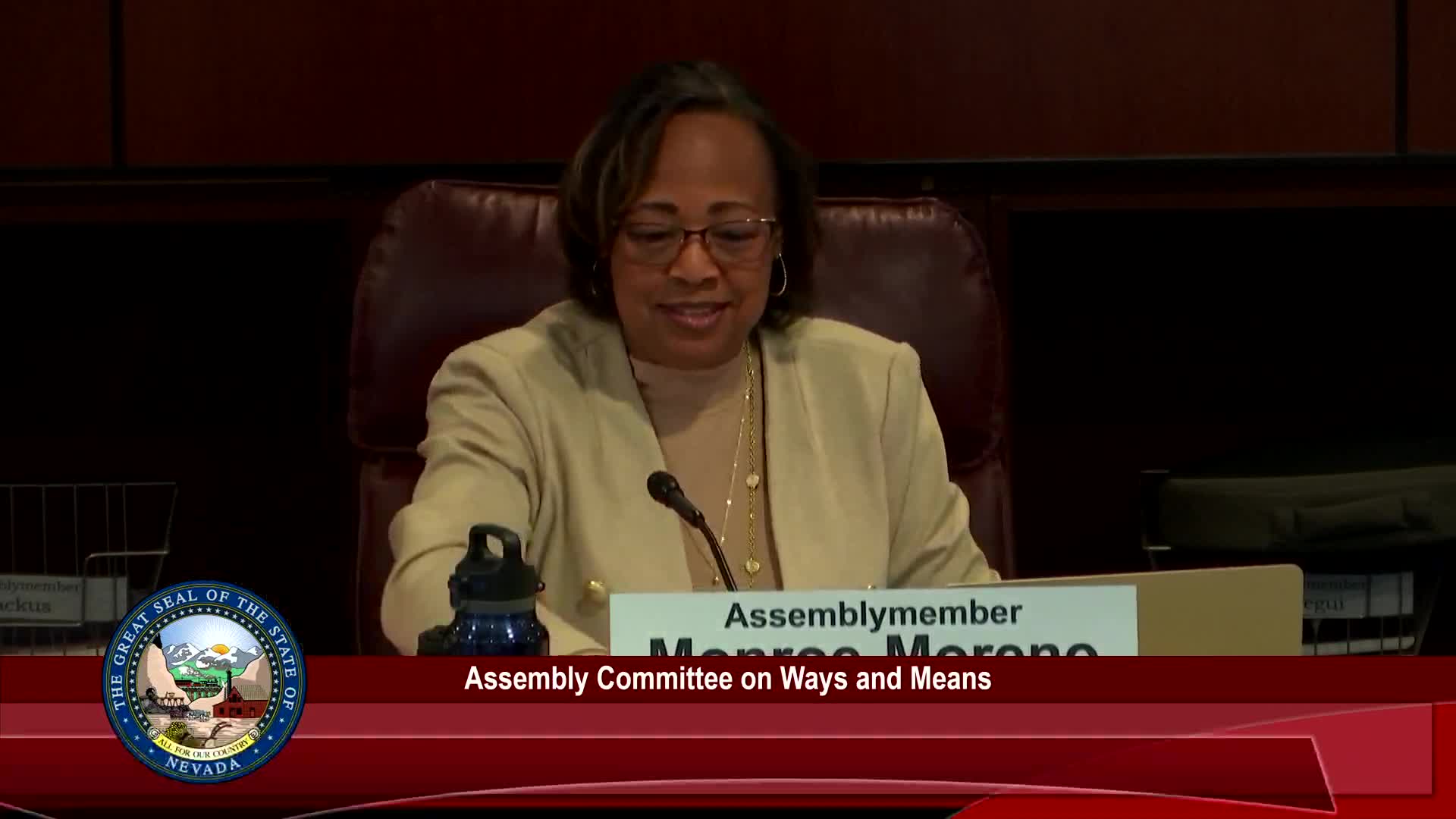
Nevada committee hears fiscal and policy case for 'second look' parole reviews in AB 91
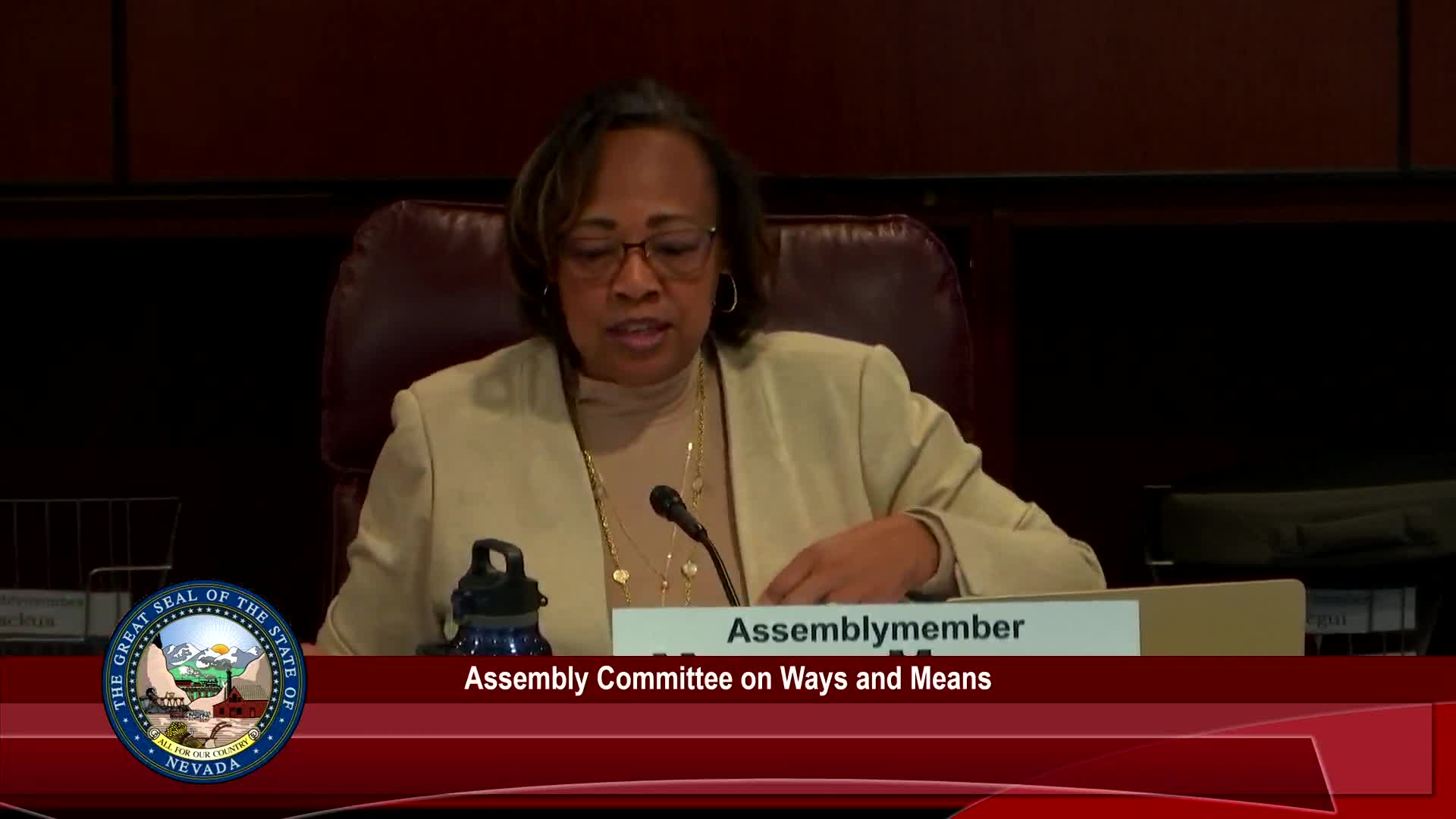
AB 320 hearing: bill would bar judges from denying court access over attire and enable probation pilot programs
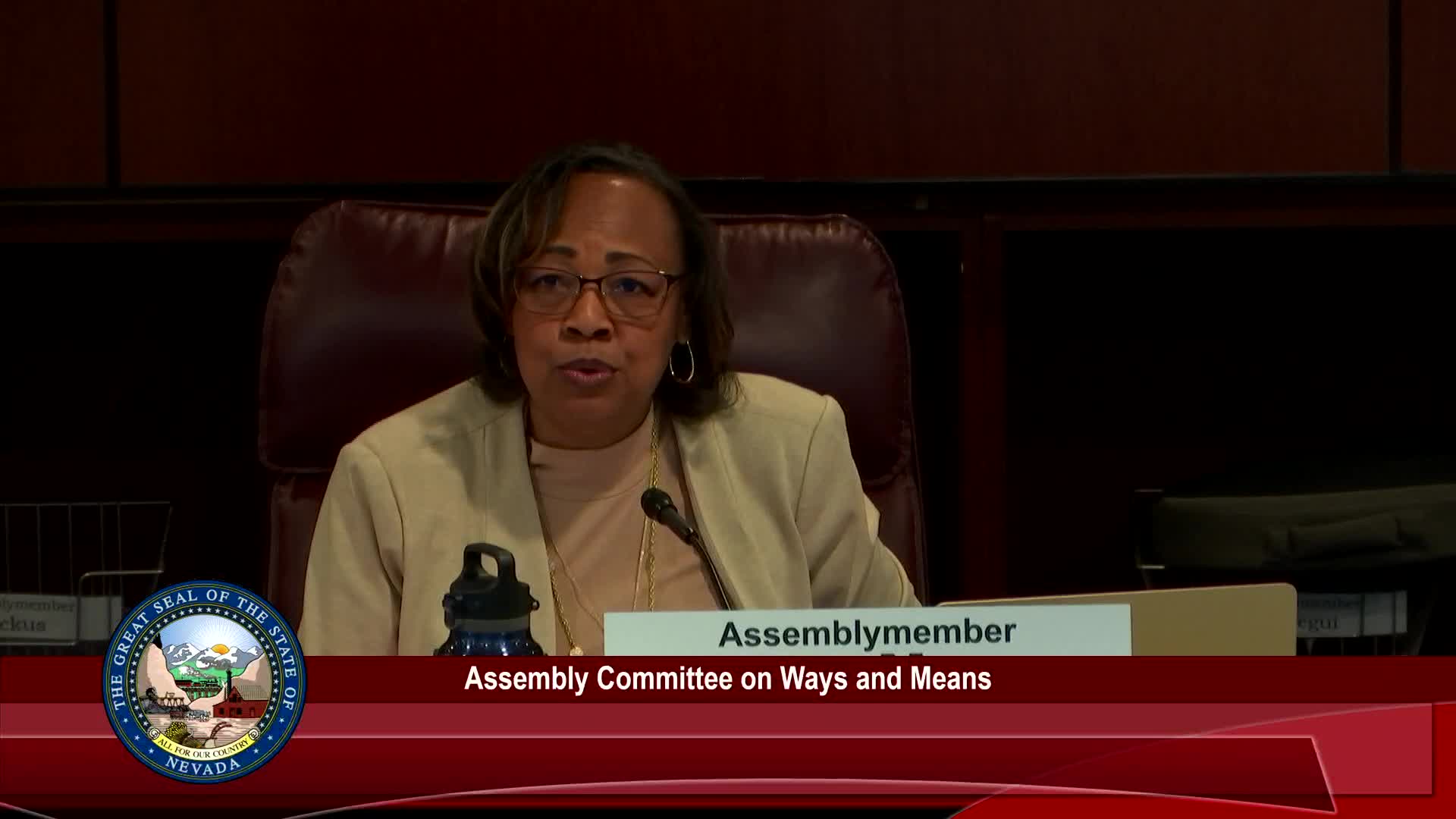
AB 105 would ban firearms within 100 feet of polling places; supporters cite voter safety, opponents call it 'gun‑free zone' risk
